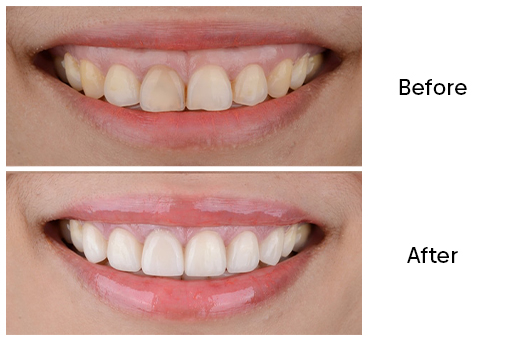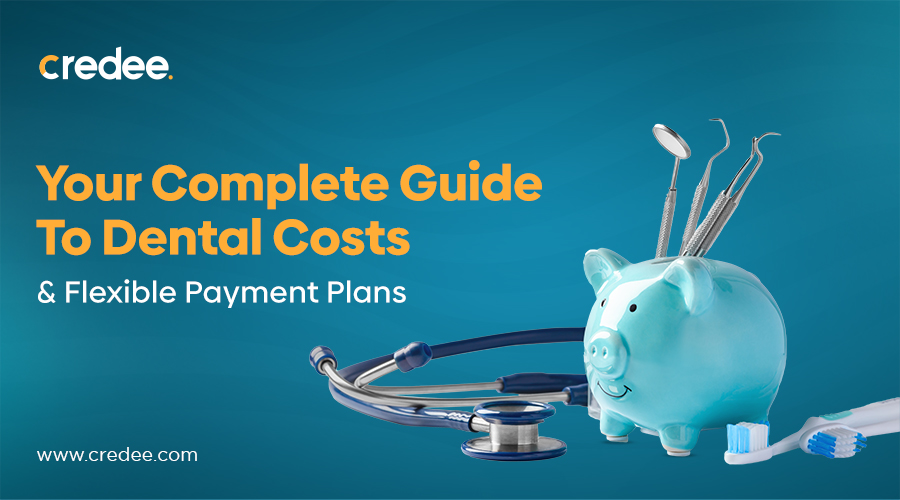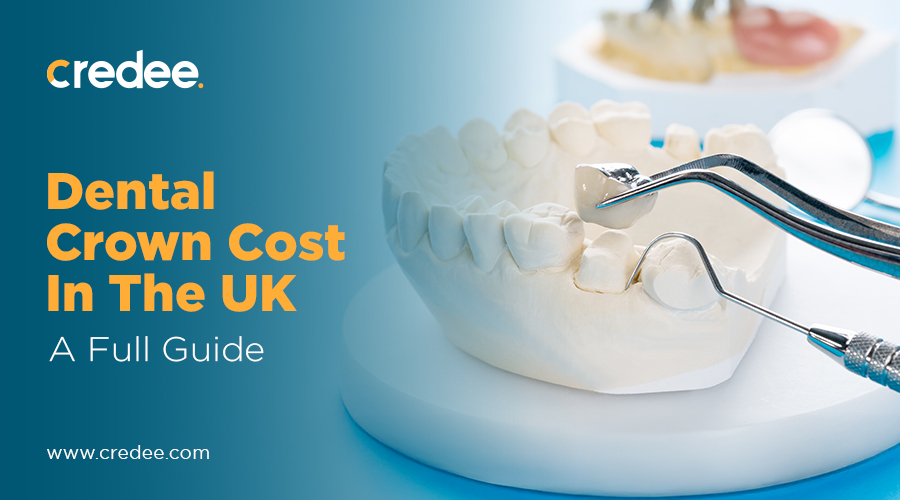
What Is Teeth Bonding?
Teeth bonding or dental bonding is a cosmetic procedure that fixes minor dental issues and enhances your smile. The procedure involves applying a tooth-colored resin material to repair chipped, misaligned, and gapped teeth. The bonding procedure is completely reversible.
How Much Is Teeth Bonding?
Once we analyze whether we need tooth bonding, one question that often comes to our mind is “how much does teeth bonding cost?” The cost of teeth bonding lies between $100 and $900 per tooth.
Several factors influence the cost, including:
1. Number of Teeth: Dentists generally charge based on the number of teeth that require bonding, so, the total cost will increase with each additional tooth.
2. Dentist’s Expertise: Dentists with specialized training in cosmetic procedures, particularly those experienced in teeth bonding, may charge higher fees due to their advanced skills and expertise.
3. Geographic Location: The cost of teeth bonding can also be affected by the dentist's location. Practices in areas with higher costs of living or high demand for dental services often charge more.
4. Procedure Complexity: The cost can vary depending on the complexity being addressed. Intricate procedures require additional time and composite resin will generally be more expensive.
Worried about teeth bonding costs? Discover Credee Financing and get the smile you deserve!
Additional Costs To Consider Before Teeth Bonding
Before getting your teeth bonded, keep in mind that there might be some extra costs involved. It's a good idea to budget for these additional expenses to ensure everything is taken care of before your tooth bonding procedure.
| Procedure | Average Cost |
|---|---|
| Dental Exam | $50 - $150 |
| Dental Cleaning | $75 - $200 |
| Professional Teeth Whitening | $300 - $800 |
Benefits Of Teeth Bonding
1. Cost-Effective: Teeth bonding is among the most budget-friendly options for cosmetic dental procedures.
2. Fast And Convenient: Unlike other procedures like veneers and crowns need multiple visits, teeth bonding can often be completed in just one appointment.
3. Durable: With proper care, the bonding material can last between five and ten years.
4. Minimally Invasive: Teeth bonding is minimally invasive as it doesn't require tooth preparation.
5. Reversible: Since bonding doesn’t involve removing enamel, it can be reversed if needed.
6. Versatile: It can address a variety of cosmetic issues, from chips and cracks to gaps and discoloration.
Does Dental Insurance Cover Teeth Bonding?
Teeth bonding is typically regarded as a cosmetic procedure, which means that it may not be covered by insurance. But, that doesn’t mean you can’t get teeth bonding just because insurance doesn’t cover it. Several dental clinics offer teeth bonding services with dental financing and payment plans, like Credee.
From Start To Finish: The Complete Teeth Bonding Process
The process is divided into two parts:
1. Before The Teeth Bonding Procedure
- When you arrive at the dentist’s clinic, they may take X-rays to examine your teeth to analyze your eligibility for the procedure.
- In case, you have cavities or gum problems, they’ll ask you to get treated for it first.
2. During The Tooth Bonding Procedure
- The surface of the tooth is roughened so that the bonding material sticks to the tooth.
- Now, the composite is applied to the tooth, and UV light is applied to harden the material.
- The tooth is shaped to ensure that it doesn’t interfere with the bite.
- Lastly, the tooth is polished and adjusted as required.
What To Expect After Teeth Bonding Procedure
| Time Frame | What To Expect |
|---|---|
| First Few Hours | Sensitivity: Mild sensitivity to temperature changes or pressure may be experienced. Immediate Appearance: The bonded area will look natural and match your surrounding teeth. Eating Restrictions: Avoid eating sticky or hard foods to allow the bonding material to set properly. |
| First 24 Hours | Dietary Cautions: Refrain from consuming dark-colored foods and drinks that could stain the bonding material. Oral Hygiene: Maintain good oral hygiene, but avoid using abrasive toothpaste. Sensitivity: Any initial sensitivity should start to decrease. If discomfort persists, contact your dentist. |
| Initial 2-3 Days | Adjustment Period: You may notice minor adjustments needed for comfort or bite alignment as the bonding material settles. Monitoring: Keep an eye on the bonded area for any changes or issues. Follow-Up Care: Schedule a follow-up appointment with your dentist if any problems or concerns arise. |
Essential Tips: Aftercare And Maintenance For Teeth Bonding
Teeth bonding is a simple and non-invasive treatment, but taking care of your bonded teeth afterward is key to ensuring they last and look great. By following the right aftercare steps, you'll keep your smile looking its best and avoid any potential problems.
| Care Aspect | Details |
|---|---|
| Avoid Staining Foods/Drinks | For the first 48 hours after getting your teeth bonded, avoid foods and drinks that can stain your teeth, like coffee, tea, and red wine. The bonding material is more prone to staining right after the treatment. |
| Avoid Nail Biting | Avoid biting your nails as this strains the bonded material and may cause it to chip or break. |
| Maintain Oral Hygiene | Choose a soft-bristled toothbrush to avoid damaging the bonded areas. Keeping up with brushing and flossing will help keep your mouth healthy and prevent any staining. |
| Avoid Hard Foods | Hard foods like candies and ice can damage the bonded material, therefore, it is better to avoid them and instead opt for softer foods to protect the bonding. |
| Wear a Mouthguard | A custom-fitted mouthguard is a good option if you tend to grind your teeth at night. It offers the best protection and helps keep your bonding in good shape. |
| Regular Dental Check-ups | Ensure you get regular dental check-ups and cleanings to keep plaque at bay and ensure your teeth stay in top shape. Your dentist will keep an eye on your bonding and take care of any issues right away. |
| Address Issues Promptly | Contact your dentist in case you notice any discomfort or chipping in the bonding as early intervention prevents further damage. |
Following these aftercare guidelines will help you enjoy the benefits of your teeth bonding treatment and maintain a beautiful, functional smile for years.
Teeth Bonding Before And After: A Visual Comparison
Check out these before-and-after images of teeth bonding. The "before" pictures show the teeth with issues like chips, gaps, or discoloration. The "after" photos reveal how bonding can make a big difference, smoothing out those imperfections and giving you a more even, attractive smile.

Teeth Bonding vs. Porcelain Veneers: Which Is Right For You?
Porcelain veneers are a more involved procedure than teeth bonding. They require removing enamel from the tooth surface and are generally more expensive and complex than tooth bonding. Here’s a chart for a quick comparison:
| Teeth Bonding | Porcelain Veneers | |
|---|---|---|
| Procedure | Less invasive, and involves applying a tooth-colored resin | More invasive, involves placing thin porcelain shells over the teeth |
| Enamel Removal | No enamel removal required | Requires a small amount of enamel removal |
| Cost | $100 To $900 | $500 To $2,000 |
| Durability | Durable but may require replacements over time | Highly durable, often lasts 10-15 years or more |
| Aesthetic Results | Effective for minor imperfections, can be less natural-looking | Provides a highly natural and polished appearance |
| Treatment Time | Usually completed in a single visit | Often requires multiple visits for preparation and placement |
| Maintenance | Easier to maintain, but can be prone to staining and chipping | Requires regular care, but less prone to staining and chipping |
Credee Financing For Teeth Bonding
If you’re planning to undergo teeth bonding and are concerned about the costs, especially since insurance doesn’t cover it, Credee Financing offers a great solution. Here’s why Credee is an excellent choice:
1. High Approval Rate: With a 97% approval rate, Credee makes it easy for most applicants to secure financing quickly, ensuring you can get the funds you need without unnecessary delays.
2. No Credit Checks: Credee simplifies the process by not conducting credit checks. This means you don’t have to worry about your credit score affecting your ability to get financing.
3. Flexible Financing Options: Credee provides a range of dental payment options, allowing you to select a plan that best fits your financial situation and preferences.
To Wrap It up
Teeth bonding is a great choice for fixing minor dental issues and improving your smile. It's quick, minimally invasive, and often more affordable than other treatments. While it might have some drawbacks, like potential staining or a shorter lifespan, it’s a solid option for many. If you're worried about the cost, Credee Financing can make things easier. With high approval rates, no credit checks, and flexible payment plans, Credee helps you manage the financial side of your dental care so you can focus on getting the smile you’ve always wanted.
FAQs
1. Does Teeth Bonding Cause Pain?
Teeth bonding is typically not painful. Since your dentist isn’t working close to the nerves inside your tooth, you usually won’t need anesthesia. Some people might feel a bit of sensitivity after the procedure, but it’s usually temporary.
2. How Much Is Tooth Bonding Cost?
The teeth bonding cost ranges from $100 to $900, depending on several factors like the clinic location, the doctor's expertise, and the number of teeth that need bonding.
3. Where Can I Get Teeth Bonding Near Me?
To find teeth bonding services near you, you can:
- Search Online: Use Google to search for "teeth bonding near me" and find local dental practices.
- Check Directories: Look for dentists in your area who offer teeth bonding.
- Seek Recommendations: Reach out to friends, family, or neighbors for suggestions.
- Contact Clinics: Call or visit nearby dental offices to see if they provide teeth bonding and set up a consultation.
4. What Are The Teeth Bonding Disadvantages?
One of the biggest disadvantages of a bonding material is that it can discolor over time, particularly if exposed to coffee, tea, or tobacco. Another disadvantage is their lifespan, which is generally shorter than other restorative options.
5. How Long Does It Take To Recover From Teeth Bonding?
There’s no recovery time needed after teeth bonding. You can jump back into your regular activities right away once your procedure is complete.
6. Is Teeth Bonding Safe For Your Teeth?
Yes, teeth bonding is generally safe and doesn't harm your oral health if your teeth and gums are healthy. However, if you have significant tooth decay or gum disease, you might need to address those issues first before getting bonding.
7. Is Tooth Bonding A Permanent Solution?
No, tooth bonding isn't permanent. Since it doesn't involve removing any enamel, it can be reversed or replaced if needed.
Ready to discuss your financing options for teeth bonding? Get in touch with Credee.
Schedule A Meeting



